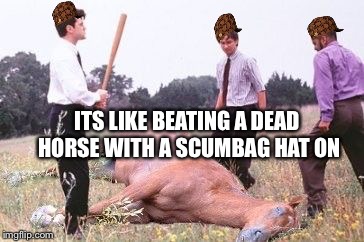I am about to tell you a lie. I’m going to give you three things about me, personal parts of my life. One of them is not true. Let’s see if, by the time you’re finished with this post, you can spot the lie.
- I have held in my hands a freshly severed human head.
- I was once charged by an angry moose in the Bitterroot Mountains.
- I have pulled my wife out of a flooding mountain river using nothing more than a canoe and a half-filipino ninja-like dude named James.
By the time you started that list, you were immediately a little irritated at me for using this meme. After all, it’s getting flogged to death on social media right now. Nevertheless, a little part of you is looking at those three absurd things, trying to figure out where the bologna is.
Because we, as humans, love to lie. Moreover, we love to catch people in lies.
There’s a whole board game culture out there about this. And it’s not exactly new. Go pick up a copy of The Resistance and play it with your friends sometime; half your friends are lying, and the other half are telling the truth, and it’s on you to figure out who’s who. The game is intense, and it’s nothing more than lying and being lied to. If you don’t want to do that, simply watch this video of other people doing it.
Why do we love lies? Because they make us smarter than the people around us. Lie to someone, and you’ve gained power over them–feed someone bogus information, and they act accordingly. Catch someone in a lie, and you’ve gained a tremendous amount of power over them. They’re a core, non-violent method of gaining control over a person’s actions. Which means they’re a core source of conflict.
And conflict is storytelling.
We’ve spent the month going over lies and dishonesty. I opened the month with a joke post, and that was a lot of fun. But now that we’re leaving the month, it’s time to get honest.
We all lie.
Odds are, you lied to someone today. In fact, lying in our society is considered polite. Giving absolutely honest answers to some questions is a really terrible idea. Don’t believe me? Try going an entire day telling everyone you meet the truth, the whole truth, and nothing but the truth. It will shift all of your relationships substantially. Certainly some argue for the better, but it will certainly make things different.
And that’s fine. That’s how we work as a society. No, you don’t look fat. I’m totally happy with my job. I care about everyone, even the people who piss me off. I’m secure. I’m confident.
But if we all lie, then so too must our characters. Understanding the difference between who they are inside and out is one of the basics. How do they see themselves, and how do they present themselves to the world? It’s not simply a form of conflict; it’s a form of existence. It’s a way to give your characters that extra bit of depth. Let them lie.
Oh, right. Remember at the beginning of this post I said I was going to tell you a lie? Well, go back and reread it. The lie wasn’t in the list; it was the sentence “One of them is not true.”
All three of those statements are the absolute truth.

 But this month isn’t about any of that. This month, we’re getting really down to the nitty-gritty. Watch as our members seize upon their favorite piece of grammar, and expound upon the proper and improper uses of that rule. We’ve got
But this month isn’t about any of that. This month, we’re getting really down to the nitty-gritty. Watch as our members seize upon their favorite piece of grammar, and expound upon the proper and improper uses of that rule. We’ve got  For me, there’s nothing quite as intimidating as a page filled with a terrible story that I have written.
For me, there’s nothing quite as intimidating as a page filled with a terrible story that I have written. I ended up with about four thousand words of me repeating the same joke over and over again as told from the persepective of a main character that, by virtue of this joke, had almost no agency. It. Was. Terrible. I haven’t drafted a story this bad since high school. I gave it a day, read the thing, and cringed.
I ended up with about four thousand words of me repeating the same joke over and over again as told from the persepective of a main character that, by virtue of this joke, had almost no agency. It. Was. Terrible. I haven’t drafted a story this bad since high school. I gave it a day, read the thing, and cringed. It was my wife that saved me. After a month went by, you know what she did? She handed me a blank page. She sat me down and told me to stop thinking about the way I had written the story, and to start completely over from my original concept.
It was my wife that saved me. After a month went by, you know what she did? She handed me a blank page. She sat me down and told me to stop thinking about the way I had written the story, and to start completely over from my original concept.